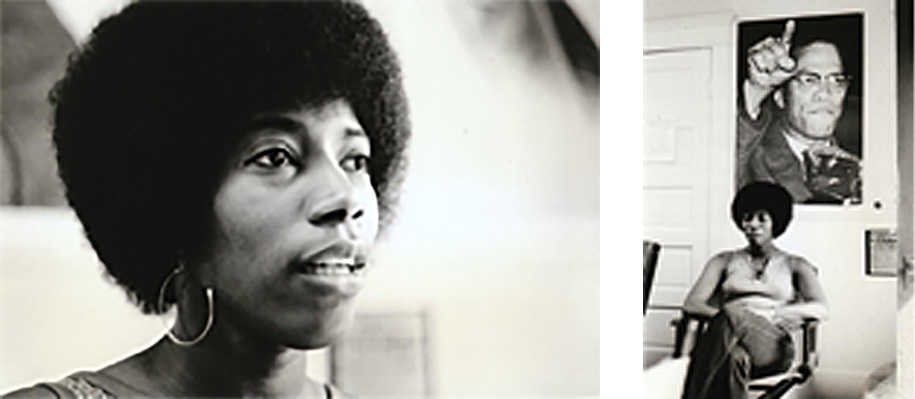Cerberus is a blog series. To start reading from the beginning, click here.
Love is a tasteless emotion for pod people. As I ate my last supper with my parents in late August of 1967 before heading off to Columbia University’s Graduate School of Journalism, my father said to me, “After you graduate, if you can’t find a job right away, you can always return home.”
I erupted, saying, “I will scrub floors rather than return to this house.”
Cerberus had just clawed Dad’s caring emotion to death. I did not know why Cerberus was so angry and so enraged. Dad had just shown love and care for my well-being. But something holed up inside me knew better and dare not escape—my own love and compassion—because my emotional life in my parents’ home was hell. To show them love and compassion now would get these feelings thrown back into the fires of hell again. My parents were my hell on earth, and I raged at them because they tried to deny it.
No one wanted to explore this breaking news story of my great escape. Not even me. It was tasteless, so nothing more was said. Had I just jumped off the Tallahatchie Bridge? “Pass the biscuits, please.”
In 1970, Cerberus sent me into the streets as a black woman mad as hell. The time was ripe for my rage, which was accompanied by the high pitched and deep resonant sounds of the congas and bongo drums that turned jazz musician, singer, and poet Gil Scott Herron’s song “The Revolution Will Not Be Televised” into the beat accompanying my marching orders. I set out to televise the Black Revolution to help make it happen.

…The revolution will not be televised
The revolution will not be brought to you by Xerox
In 4 parts without commercial interruption
The revolution will not show you pictures of Nixon
Blowing a bugle and leading a charge by John Mitchell
General Abrams and Spiro Agnew to eat
Hog maws confiscated from a Harlem sanctuary
The revolution will not be televised
I created a news and public affairs magazine show for KCET, the public television station in Los Angeles. The station rented a storefront in South Central LA, which I made headquarters for my production staff as well as the studio for my weekly magazine show.
During this early period (1970-1973) of my television producer career, whenever I went over budget to cover an unfolding news story in Black LA, I was called into the front office. I would curse and speak truth to power that the black community required and demanded such coverage because no one else was doing it. I was unrepentant and unremorseful. Cerberus wouldn’t back down. And I always got my way, thanks in no small part to the wunderkind executive producer at KCET, Chuck Allen. He loved experimental television, so he went to the edge of firing me, but always stepped back from that precipice. Some of my shows went national, won major awards, and he loved it. I never thanked him then, but I thank him now. Thank you, Chuck Allen.
My career trajectory seemed clear. I was one of the first African American television producers in America in the early 1970s and one of the first black women to become a director member in the Directors Guild of America. But I was hated. As one of the white production crew members told me on a location shoot, “You are not hated because you are black or a woman, you are hated because you are you.” I was relentless on the job, firing most of the people I hired as not being good enough. No one liked me, but Cerberus didn’t give a damn.
My career pathway dead-ended. I finally quit my KCET show and left the station because I felt like a failure. I had not created the black revolution my show called for. I had fired staff thinking something was wrong with them. But finally I had to admit that I must be doing something wrong. So I took time off to plan my next steps. Eventually KNBC’s executive producer Loring D’Usseau hired me to start a talk show and produce specials about Black LA. When Loring moved to KCET a few months later, his only regret, he told me, was that he would not be around when station management discovered who they had hired. When they did discover they had a producer on staff who refused to keep her black history special within its assigned budget, they fired me.
I had spent countless Saturday’s crying for half an hour or so, without a clue about the source of my tears. But now I racked focus and felt the truth: my emotional life felt like hell.
I was suffering inside me but hadn’t the words, the ideas, or the temperament to face my suffering and acknowledge it. Those skills had never been developed in my brain and self-knowledge of my suffering had been carted off to hell. My compassion and heartfelt empathy for my own suffering had been damned. As a result, my ego lacked the capacity to empathize with my suffering because access to it was blocked by the hound of Hades at the gates of hell.
I was suffering inside me but hadn’t the words, the ideas, or the temperament to face my suffering and acknowledge it.
My conscience was entirely content with this state of affairs because it was also Cerberus’s conscience. It gave me no peace of mind but hounded me night and day as someone unworthy of love. The prooftext for my unworthiness, of course, was Mom and Dad. They despised me. My ego got their message, took it in, and despised me, too.
The first step beyond my self-hatred became the first step by my feelings out of hell. I felt sad, angry, panicky, abandoned, nervous, and anxious. But instead of pulling myself out of the quagmire of those feelings by going shopping or watching a movie, or eating, reading, or doing something else to distract me, I sat still. My mind now focused all of its attention on the rhythmic movement of my heart. I felt that movement, that pulse of my life my, and I listened, without distraction, to the sound of my heart beating.
The first step beyond my self-hatred became the first step by my feelings out of hell.
This first step of feeling my heart beating and listening to its sound became a remarkably simple spiritual practice. The only thing I had to do was to feel my heart beating inside my chest and listen to it until it became the sound of a stranger knocking on the door to my heart. My spontaneous smile alerted me to the shift that had just happened. My mind was now utterly fascinated by the rhythmic movement as the feeling of a stranger knocking on the door to my heart grew more inviting. Soon my mind was emptied of ideas and filled to overflowing with the sound of the stranger knocking on the door to my heart. Gradually the door to my heart opened, and love entered.
I did not create this love. The love created me as I witnessed a moment of my own creation as more than myself alone.
Now I knew what sin was.

Sin: the inability to experience a moment of my own creation as more than myself alone
And I knew what salvation felt like.

Salvation: regaining the ability to experience a moment of my own creation as more than myself alone
To remain in this state of salvation I have to live my life according to a new set of rack-focus rules:
- I have to shift the focus of my lens from the ward of Cerberus—my ego—to the presence of my True Self. This shift takes place when I focus my attention on my heart beat and listen to it as it turns into the sound of a stranger knocking on the door to my heart.
- I have to stay present as witness to the sound of my heartbeat for a minute or so each day. This practice becomes my spiritual practice of welcoming the stranger into my life. The entrance way to my heart begins to open up and the love and compassion I abandoned years ago return to the heart of my life. The stranger knocking on my door is love.
- I have to witness the suffering in others when their Cerberus shows up. I do this by racking focus. I look over the shoulder of the beast to see what he hides: a human soul laid waste through suffering, a person whose loving and compassionate feelings have been damned to hell, a human soul suffering a numbing, blunting, eviscerating defeat.
I rack focus everyday as a spiritual practice. Each day I have to learn how to fall into the infinite love that is the heart of the universe. Each day I have to learn how to practice love beyond belief anew as insight, reflection, and action guided by compassion. No one must be a stranger to me anymore. Not even me. I have to learn these lessons through daily practice because Cerberus will be within me—and in those around me—for the rest of my life.
Chapter 15, Love >
This blog series and all other materials on this website have been offered to you at no cost. New chapters will be released at regular intervals. If you like this blog and find it useful, please consider making a donation to support Rev. Dr. Thandeka’s work.
Click here to donate: |










Post a comment